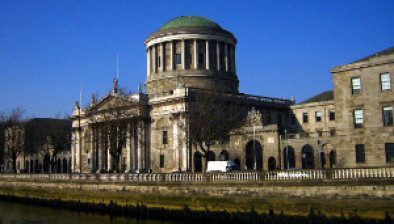High Court: Court gives qualified answer on right to silence in employment matter

The High Court has determined that an employee was entitled to refuse to answer his employer’s questions whilst a criminal investigation was ongoing, but that entitlement would cease when the criminal investigation ended or if the plaintiff could establish that its interest in the performance of his contractual obligations outweighed the risk of infringement of his right to silence.

About this case:
- Citation:[2024] IEHC 65
- Judgment:
- Court:High Court
- Judge:Mr Justice Rory Mulcahy
Delivering judgment for the High Court, Mr Justice Rory Mulcahy opined: “The Irish courts have long recognised that the constitutional right to fair procedures, identified in Re Haughey, are also guaranteed in any proceeding, such as a disciplinary proceeding, where a person’s good name may be in issue, the scope of such procedures falling to be determined in each individual case.”
Background
On 1 June 2022, ESB reported the allegations that certain ESB employees, including the defendant network technician, were demanding cash payments from customers in exchange for expediting ESB works to gardaí. Gardaí carried out searches of the defendant’s home and vehicle on 27 July 2022, seizing two mobile phones. Gardaí advised the defendant that he was being investigated for bribery and corruption in his work for ESB.
On 27 July 2022, ESB obtained a Norwich Pharmacal order in the High Court against two developers who had made the allegations as against its employees, seeking documents concerning the making of alleged payments to ESB employees.
On 8 August 2022, ESB wrote to the defendant stating inter alia that if he had engaged in conduct in connection with his ESB employment that was required to be disclosed to ESB, then he should immediately provide all relevant information to ESB.
Following the hearing of the plaintiff’s application against the developers, ESB wrote to the defendant on 17 February 2022 asking whether he had ever asked for or received payment or any other emolument from a third party in connection with the performance of his duties or the duties of any other ESB employee, and if so, to provide full details of same. The letter formally instructed the defendant to furnish his answers by 5pm on 21 February 2022.
The defendant’s solicitor replied to ESB’s letter on 21 February 2023, seeking details of the allegations being made by ESB and stating that the defendant was advised not to reply to the plaintiff’s questions in light of the ongoing criminal investigation and his right to silence. The letter further denied any wrongdoing on part of the defendant.
ESB asserted that it was entitled to the information sought by reason of the employer/employee relationship and referred to the defendant’s implied obligation of cooperation under Irish law. ESB also stated that the defendant’s refusal to answer its questions was being treated as a repudiatory breach of his contract and that if he didn’t answer by 3 March 2022, it reserved its rights inter alia to treat the employment contract as being at an end.
ESB issued proceedings against the defendant on 13 April 2023, and by consent order dated 15 May 2023, the parties agreed that the following legal points would be set down for trial:
- “Does the Defendant’s right to silence and/or privilege against self-incrimination permit him to lawfully refuse to comply with the directions issued to him by the Plaintiff in its letter dated 17 February 2023?
- “If the answer to the first question is ‘No’, does the Defendant’s refusal to comply with the directions issued to him by the Plaintiff in its letter dated 17 February 2023 amount to a repudiatory breach of his contract of employment with the Plaintiff such that the Plaintiff is entitled to treat his contract of employment as terminated?
- “If the answer to the second question is ‘Yes’, on what date was the said contract of employment terminated?”
The High Court
The court considered that “principal issue” between the parties was whether the defendant’s right to silence was capable of having horizontal effect between private parties, disagreeing with their position that the situation could be addressed “by the simple application of a fixed rule, one way or the other”.
Disagreeing that the plaintiff’s contention that the defendant could not rely on the privilege against self-incrimination, the court found that it has been “consistently recognised that constitutional rights can have effects between private parties, horizontal effects, as they are described in McGee. Since Meskell, the case law has consistently identified that there are circumstances in which the courts will intervene to protect constitutional rights in the private sphere.”
Noting the plaintiff’s assertion that the privilege is confined to the prevention of State abuse in the form of ill-treatment or the procuring of unreliable confessions, Mr Justice Mulcahy found that “none of the authorities relied upon support such a narrow characterisation of the rights encompassed by the right to silence or the privilege against self-incrimination”.
Recognising that what requires consideration is “first, whether the person is acting under a compulsion, and second, whether there is a risk that the testimony provided may be relied upon in a criminal trial”, Mr Justice Mulcahy found: “When the right is considered as an integral feature of a fair trial, and of fair procedures, confining impermissible compulsion to compulsion by the State is difficult to justify at the level of principle.”
The judge continued that Meskell v CIE [1973] IR 121 made it clear that requiring an employee to forego constitutional rights or face dismissal is a violation of those rights, and that Uniformed Sanitation Men Association v Commissioner of Sanitation of the City of New York (1968) 392 US 80 suggests that demanding answers with a threat of dismissal if the answers are not provided could be considered an impermissible compulsion, noting that “the fear of being dismissed may, in many cases, be just as much a cause for concern as the threat of a penal sanction. If that is so, it is difficult to justify affording protection to persons who happen to be employed by the State but depriving all others of even the possibility of such protection.”
The court considered Wicklow County Council v O’Reilly [2006] 3 IR 623, in which the court acknowledged the right to silence as capable of being engaged in civil proceedings in that civil proceedings could involve a degree of compulsion on defendants to make statements to best protect themselves, but that factor had to be balanced with the importance of allowing civil matters to proceed.
Acknowledging that it would not be appropriate to carry out the necessary balancing exercise at the preliminary stage based on limited agreed facts, the court considered that “it is at least questionable whether the defendant’s reliance on his constitutional rights could continue to be available to him indefinitely if the criminal investigation were not closed”.
In respect of the first question, the court found that the defendant was entitled to refuse to comply with the plaintiff’s directions whilst the criminal investigation is ongoing, but that that entitlement would cease when the criminal investigation ends, or when the plaintiff could establish that its interest in insisting on his performance of his contractual obligations outweighs the risk of infringement of his constitutionally protected right to silence.
Conclusion
Having answered the first question with a qualified “yes”, the court determined that the second and third questions did not arise for consideration.
Electricity Supply Board v. Kieran Sharkey [2024] IEHC 65










